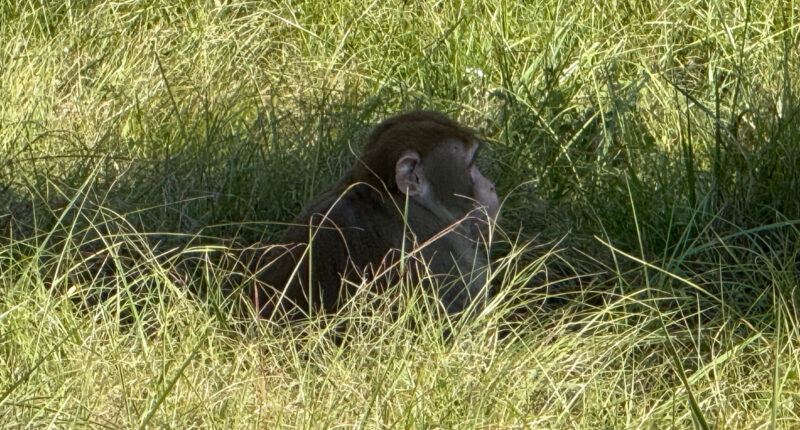Share this @internewscast.com
In a startling incident in Heidelberg, Mississippi, a homeowner took drastic action when one of the monkeys that had escaped from a transport truck last week was found on her property. The monkey was shot and killed early Sunday morning, as the woman feared for the safety of her children.
Jessica Bond Ferguson recounted the moment she was awakened by her 16-year-old son, who had spotted what he believed to be a monkey in their yard. Living near Heidelberg, Mississippi, Bond quickly grabbed her firearm and cellphone before heading outside. There, about 60 feet away, she confirmed the presence of the monkey.
Residents in the area, including Bond, had been warned about the potential diseases carried by the escaped monkeys. Feeling the need to protect her family, she decided to fire her weapon. “I did what any other mother would do to protect her children,” Bond explained. With five children aged between 4 and 16, she felt the need to ensure their safety. “I shot at it and it just stood there, and I shot again, and he backed up and that’s when he fell,” she told The Associated Press.
The incident was later confirmed by the Jasper County Sheriff’s Office in a social media update, stating that a homeowner had indeed encountered one of the monkeys on their property. However, the office refrained from providing further details. Following the incident, the Mississippi Department of Wildlife, Fisheries, and Parks took possession of the monkey.
The monkeys in question were Rhesus monkeys, which had been housed at the Tulane University National Biomedical Research Center in New Orleans, Louisiana. This center is known for supplying primates to various scientific research organizations. Tulane University clarified in a statement that the monkeys were not owned by the university, nor were they being transported by it at the time of the incident.
The Rhesus monkeys had been housed at the Tulane University National Biomedical Research Center in New Orleans, Louisiana, which routinely provides primates to scientific research organizations, according to the university. In a statement, Tulane University said the monkeys do not belong to the university, and they were not being transported by the university.
.
















